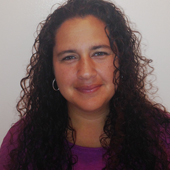
Megan Bang
Professor
- PhD institution: Northwestern University
- Previous title and institution: Associate Professor at the University of Washington
- Home department: Learning Sciences

Professor
Associate Professor of Instruction
I do research on pragmatics, studying the way native and nonnative speakers of Spanish express politeness. I also study the development of the pragmatic competence of L2 and heritage speakers of Spanish. In addition, I work on intercultural communication and on the use of technologies to enhance the language experience.
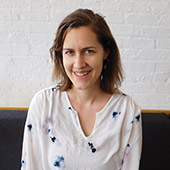
Assistant Professor
My research explores the relationship between inequality in educational opportunity and demographic processes, with an emphasis on fertility and family formation. Much of my work is motivated by a central question: How does family background shape educational opportunities, and in turn, how does education shape fertility, family formation, and the intergenerational transmission of inequality? My work takes an international comparative perspective that focuses on contexts in sub-Saharan Africa and South Asia undergoing rapid economic, social, and demographic change.
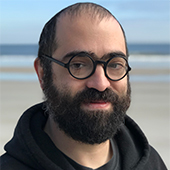
Assistant Professor
My research focuses on understanding how information encoded in DNA is utilized to direct the process of embryonic development, using as a model system the fruit fly Drosophila melanogaster. Genomic DNA is stored in the nucleus not as a naked polymer, but rather as a complex nucleoprotein complex referred to as chromatin. Chromatin structure subdivides functional domains within the genome, relegating DNA sequences to either 'active' or 'inactive' compartments. My research combines classical embryology, genetics, genomics, and quantitative imaging to focus on three main questions. 1) How does chromatin structure evolve over the course of embryonic development as cells acquire unique fates and distinct patterns of active and inactive compartments? 2) What are the mechanisms and regulatory strategies used by the embryo to drive these changes in chromatin structure? 3) Can we develop optical tools to both observe and manipulate chromatin states in real time?
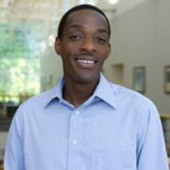
Associate Professor of Instruction
I am interested in undergraduate science education and in practices that promote knowledge retention. Specifically, I am interested in research on effective teaching and study practices.
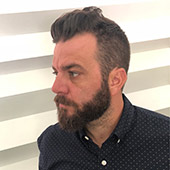
Assistant Professor of Instruction
My research into the complex relationships between materials and experience focuses on the prevalent use and symbolic possibilities of plastic. This research also reflects my long fascination with Color Field painting, the Light and Space artists and the structures of Neo Geo. I extend these historic visual and material languages by focusing on their relationship to contemporary technology, notably the flatness and vastness of the screens in our world. For me, the ontological qualities of my works are not unlike the experiences of our relationships to others, our current sense of touch, or even our connections to bio-metrics and drugs. Exploring the material possibilities and the ever-expanding field of painting has been the root of my practice for the past decade. Overall, I am interested in mining a social landscape built on connectivity and isolation in an attempt to better define and understand the contingencies of contemporary experience and space.
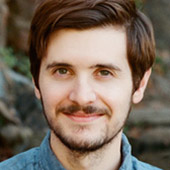
College Fellow
I specialize in the study of Chinese Buddhism. My research seeks to help us better understand the processes by which Buddhism was transformed as it was transmitted from India to China, with special attention to the rise of the Chan (Zen) Buddhist tradition and to interactions between Chinese Buddhists and Daoists. Thematically, my research explores how religious identities take shape and assume social authority, how materiality and embodiment figure into Buddhist soteriology, and how Buddhists have grappled with the problem of human agency.
College Adviser/Assistant Professor of Instruction
I study how plants and their environments have shaped one another through Earth's history, reconstructing plant ecology and paleoclimate from fossils from a variety of different places and times. Through careful examinations of the environmental drivers of aspects such as leaf cellular morphology and stable isotope composition, my research applies a modern-plant perspective to questions of how ancient plants recorded the environments they inhabited. Once we develop and parameterize the appropriate proxy tools using living plants, we can apply them to fossil floras in order to interpret ecosystem aspects such as forest canopy structure that cannot be directly recorded but that impact nutrient cycling, food webs, and other factors. Ultimately, this expands our understanding of the history of environmental change on Earth and deepens the context for the effects of current climate change.
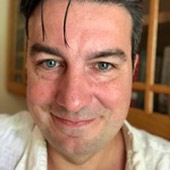
Associate Professor
Professor Carrasco is broadly interested in theoretical physics, from prediction-oriented understanding of quantum field theories, to open phenomenological questions in precision cosmology and gravitational wave astronomy. He has a deep affinity for the value of pushing the line of failure-point predictions. These involve calculations that take modern methods and world-class technologies to their breaking point. To make progress, this strategy invites new ideas, new physical stories, and ultimately the apprehension of novel structure.
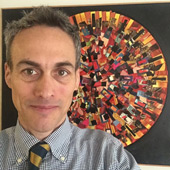
Assistant Dean for Academic Integrity, Senior Lecturer
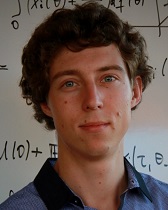
Assistant Professor
I work on mechanism and information design, seeking to combine research in pure theory with more applied interests in financial over-the-counter markets. I am also interested in market design.
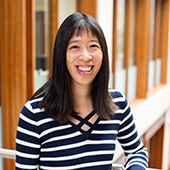
Assistant Professor
My research group seeks to unravel the mysteries enshrouding cosmic explosions, including gamma-ray bursts and gravitational wave sources. My group uses a large variety of telescopes spanning radio, optical, near-infrared, and X-ray wavelengths on the ground and in space to study these explosions and their host galaxy environments. These facilities are located in New Mexico, Chile, Hawaii and Arizona on the ground, as well as in space-based missions.
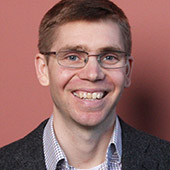
Assistant Professor
The Gingrich group applies analytical and computational methods to problems in statistical mechanics, stochastic thermodynamics, chemical kinetics, and biophysics. In particular, we seek principles and numerical techniques to describe nonequilibrium chemical dynamics. Inspired by biological systems that utilize chemical fuels to drive nonequilibrium processes, we aim to develop tools that can aid in the design of artificial systems with similar capabilities.
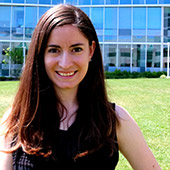
Assistant Professor
My research focuses on understanding how humans engage in complex behaviors. At every waking moment, the human brain absorbs information, selectively filters it, and integrates it into perceptions and memories. How does the brain flexibly coordinate these functions to achieve different goals? And what happens when these functions break down? My lab pursues these fundamental questions using a combination of methods including functional Magnetic Resonance Imaging (fMRI), transcranial magnetic stimulation (TMS), and studies of patients with different forms of neurological or psychiatric illness. We combine these methods with a sophisticated computational toolkit, examining the representational, processing, and network characteristics of different brain regions. Recently, we have also focused on expanding these methods to map the unique aspects of individual human brains to better understand variability in complex behavior.
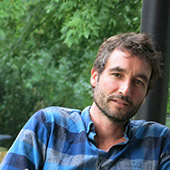
Associate Professor of Instruction
My research falls within the area of number theory and arithmetic geometry. I study families of Galois representations arising from abelian varieties and modular forms. These mathematical creatures played a prominent role in the proof of Fermat's Last Theorem and are put to use in the design of cryptosystems. I am interested both in computational questions related to these Galois representations, as well as theoretical issues articulated by some longstanding open conjectures.
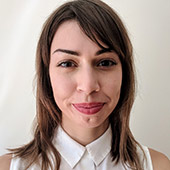
College Fellow
I am a philosopher of language with an interest in applications of formal linguistic tools to socio-politically interesting features of mass discourse. My research focuses on the way that conversations are organized into topics, and on the way that discourse participants understand one another as elaborating upon this topic structure. In one current project, I pursue the idea that modeling a conversation's topic structure with an appropriate level of granularity can be thought of as representing the manner in which issues are collaboratively deliberated about in that conversation, which suggests a new way of using linguistic data to contrast agents' deliberative strategies. This in turn suggests a way of examining the phenomena of partisanship, polarization, and propaganda via linguistic data. I also have current projects on the nature of communication and on `higher-order' talk, a genre of conversational contribution instances of which characteristically function not just to elaborate on, but to evaluate, clarify, and revise the existing conversational structure.
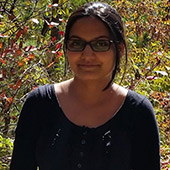
Assistant Professor
I am a historian of South Asia specializing in the period from the 18th century to the present. Broadly, my research investigates the processes through which collective identities take shape and transform in colonial and post-colonial contexts. My current book project examines the historical intertwining of caste, religion, and politics in 20th-century South Asia by telling the story of a Punjabi Muslim community called the Arains. I pay special attention to the ways in which Islamic genealogical narratives, gendered notions of ideal socio-religious conduct, ideas about property-ownership, and political representation shaped the Arains' identity as they, and South Asia as a region, witnessed the transition from British colonial authority to post-colonial nation-building.
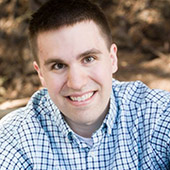
Assistant Professor
My research interests are centered on using advanced atom interferometers for fundamental physics tests and for quantum sensing. The Kovachy research group at Northwestern will use a high-precision atom interferometric gravity gradiometer to look for new particles beyond the standard model, including light moduli associated with the compactified extra dimensions that arise in string theory, by searching for deviations from the gravitational inverse square law with improved sensitivity. This experimental setup will also be used for a new measurement of Newton's gravitational constant and for developing improved atomic gravitational sensors. Additionally, the group is part of the Mid-band Atomic Gravitational Wave Interferometric Sensor (MAGIS) collaboration, which is working to develop the technology for an atom interferometric gravitational wave detector in a frequency band in between those addressed by the LIGO detector and the planned LISA detector. In addition to its potential for new astrophysical and cosmological discoveries, this atom interferometric detector would be capable of conducting highly sensitive dark matter searches.
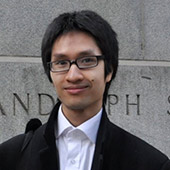
Assistant Professor
My research lies at the intersection between number theory, geometry and representation theory. One of my main aims is to study the hidden (discrete) symmetries of whole numbers by organizing them into continuous geometric shapes. The resulting geometric objects turn out to possess very rich structures and intriguing connections to continuous symmetries related to quantum physics. I hope to exploit this connection to explore the deep properties of whole numbers.
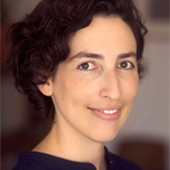
I am an architectural historian specializing in 20th century architecture and urbanism. My main interests are architecture and urban planning in postcolonial African states, non-western modernisms, and north-south or south-south exchange. I am currently completing my first book project on the export of Israeli architectural and planning development models to Sierra Leone, Nigeria, Ethiopia, and the Ivory Coast in the 1960s-1970s. My next project will explore the work of American architects, planners, and landscape architects in Africa from the mid 1950s to the late 1970s.
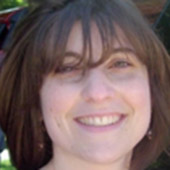
Associate Professor of Instruction
My background is in the areas of parenting and the effects of early infant and childhood experiences on subsequent development. I have studied the intergenerational transmission of parent-child relationship patterns, including intergenerational patterns of child maltreatment. I am interested in understanding the various factors that inform parenting, including the parent's own history of relationships, current social support networks, and life stresses. I also seek to understand the way that parenting interacts with other factors (for example, genetics and life stresses) to influence children's social emotional development.
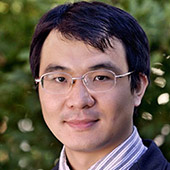
Associate Professor
As a computer scientist and statistician, I use computation and data as a lens to explore science and intelligence. My specific research focuses on nonparametric structure learning and representation learning. My applied research interest is to develop a unified set of computational, statistical, and software tools to extract and interpret significant information from the data collected from a variety of scientific areas.
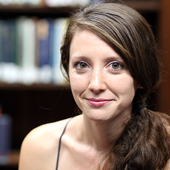
College Fellow
My research interests lie primarily in Classical Greek philosophy. My work is at the intersection of ethics, epistemology, and moral psychology in the works of Plato and Aristotle. I am particularly interested in Ancient views on the passions, their nature, their ethical significance, and their role in a good life. I also work in the history of Ancient medicine.
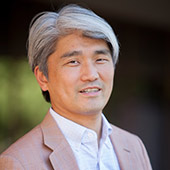
Professor
Miyazaki has published extensively on theories of exchange, futurity, and hope. His latest book is The Economy of Hope (University of Pennsylvania Press, 2017). Eo-edited with Richard Swedberg, the book is a systematic investigation of hope across time and space. His previous book, Arbitraging Japan: Dreams of Capitalism at the End of Finance (University of California Press, 2013), is an ethnographic study of Japanese derivatives traders and the utopian dreams animating their daily trading and life decisions. His first book, The Method of Hope: Anthropology, Philosophy, and Fijian Knowledge (Stanford University Press, 2004), is an ethnographic study of Suvavou people, the descendants of the original landowners of Fiji's capital, Suva, and a chronicle of their effort to reclaim their ancestral land. Miyazaki's current research focuses on the history of citizen diplomacy for peace in Japan and the United States. He has recently had the honor of being appointed Peace Correspondent for Nagasaki by the mayor of Nagasaki.
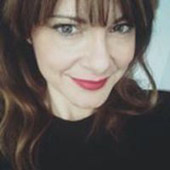
Associate Professor
Professor Paola Nasti is a scholar of renown in medieval Italian literature, religious culture, and textual and intellectual history and one of the leading experts today on the relationship between Dante's work and thought and the rich and complex religious cultures of his time. Professor Nasti has been associate professor of Italian studies at the University of Reading since 2010. She holds a Ph.D. in Italian studies from the University of Reading and an honors B.A. in Italian that she earned jointly from the University of Naples "Federico II" and the University of Reading. She is the author of the influential and award winning book, Favole d'amor e "saver profondo": La tradizione salomonica in Dante (2007) and a large body of articles published in leading journals and in edited volumes both in English and in Italian. She is an authority on the question of Dante's intellectual formation and is a founding member of the project "Re-reading Dante's Vita Nova. A Collaborative Project" that brings together leading Dante experts from seven British and American universities.
College Fellow
My research focuses on repeated and dynamic games, and in particular, the incentives of economic agents to build and maintain reputations in long-term relationships. My work extends the applicability of reputation models by allowing for richer informational environments, and has provided strategic foundations for the commitment assumption in the canonical reputation models.
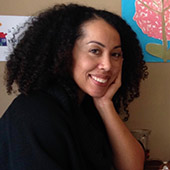
Assistant Professor
kihana miraya ross is an assistant professor of African American Studies. Her program of research draws on critical ethnographic and participatory design methodologies to examine the multiplicity of ways that antiblackness is lived by Black students in what she calls the afterlife of school segregation, a framework that illuminates the ways in which, despite the end of legal segregation of schooling, Black students remain systematically dehumanized and positioned as uneducable. Critically, her work also explores how Black educators and students collectively imagine and resist antiblackness, and racialization processes more generally. Specifically, her conceptualization of Black educational fugitive space explores the ways Black students and educators enact educational fugitivity through the social production of Black space in the margin. She is particularly interested in the ways Black educational fugitive space manifests as both departure and refuge from the gratuitous violence of the afterlife of school segregation, and spawns the possibilities for rebirth and resistance.
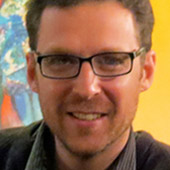
Assistant Professor of Instruction
While Rob Ryder is currently focused on teaching the Business German sequence, he has also designed a game app to supplement his German-language instruction and has co-published qualitative results of its test-run in the summer of 2017. He also has an active research and publishing career in the field of German literature and media studies. He has recently published articles in the Germanic Review and the Goethe Yearbook and is currently working on an article for the Journal of the Kafka Society of America. Other interests include the German radio play, German graphic novels, and sound studies. His first monograph, "Hearing Otherwise: The Acoustical Unconscious from Walter Benjamin to Alexander Kluge," is forthcoming with Northwestern UP.
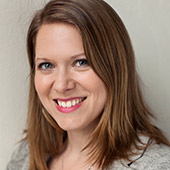
Associate Professor
I develop and study statistical methods in the context of education and the social sciences. One part of my research focuses on making improved generalizations from experimental findings via better study designs, sampling and recruitment planning, as well as methods for treatment-effect estimation and reporting. Other research focuses on the development of methods for meta-analysis, particularly approaches to handling dependent effect sizes. I also develop methods for small sample adjustments to cluster robust variance estimation more generally, including applications to economics.
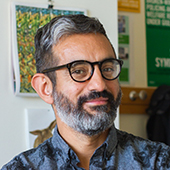
College Advisor/Assistant Professor of Instruction
My research interests include the molecular biology of fungi and evolution of gene expression. In addition I have studied issues related to STEM education including community outreach, peer instruction, teaching quantitative reasoning skills, broadening participation of historically underrepresented minorities, and public policy.
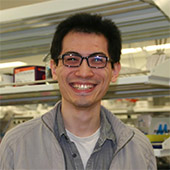
Assistant Professor
Large numbers of genes turn on and off in temporally and spatially precise patterns in the brain to regulate neural circuit development and refinement. I am interested in the chromatin mechanisms operating in the nucleus that organize functional neural circuits. In particular, I am studying how developmental signals or sensory experience in vivo activate these chromatin mechanisms to orchestrate programs of gene expression in the brain. I use the mouse cerebellum, a hindbrain structure important for motor coordination and motor learning, as my model system. A major goal is to elucidate how chromatin mechanisms and gene expression networks pattern the neural circuits underlying motor behavior and learning and memory.